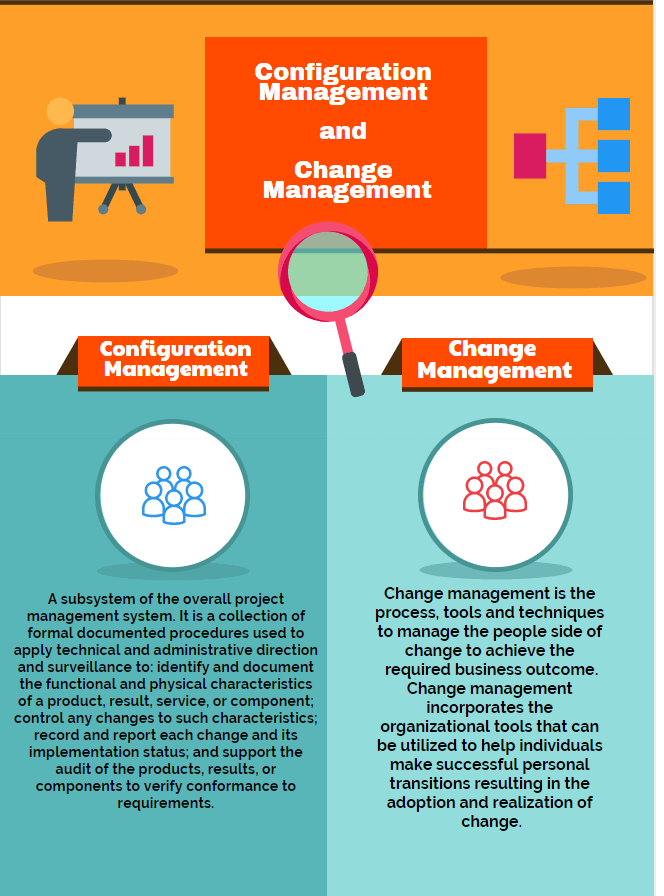Software Configuration Management Definition. Some organizations treat this as one discipline. This includes technical aspects of the project all level of communications organization and the control of modifications changes to the project plan by the programmers during the development phase.

Software Configuration Management SCM is the the overall management of a software design project as it evolves into a software product or system. Configuration Management is a bunch of competencies methods tools and techniques in establishing and maintaining computer systems servers and software in the uniformity of their functioning with its requirements design and operational information throughout the span. SCM is the process of identifying and defining the items in the system controlling the.
Configuration management practices include revision control and the establishment of baselines.
Configuration Management is a bunch of competencies methods tools and techniques in establishing and maintaining computer systems servers and software in the uniformity of their functioning with its requirements design and operational information throughout the span. What is Configuration Management Configuration management CM is a systems engineering process for establishing and maintaining consistency of a products performance functional and physical. Configuration management CM is a systems engineering process for establishing and maintaining consistency of a products performance functional and physical attributes with its requirements design and operational information throughout its life. Its the discipline of ensuring that all software and hardware assets which a company owns are known and tracked at all timesany future changes to these assets are known and tracked.